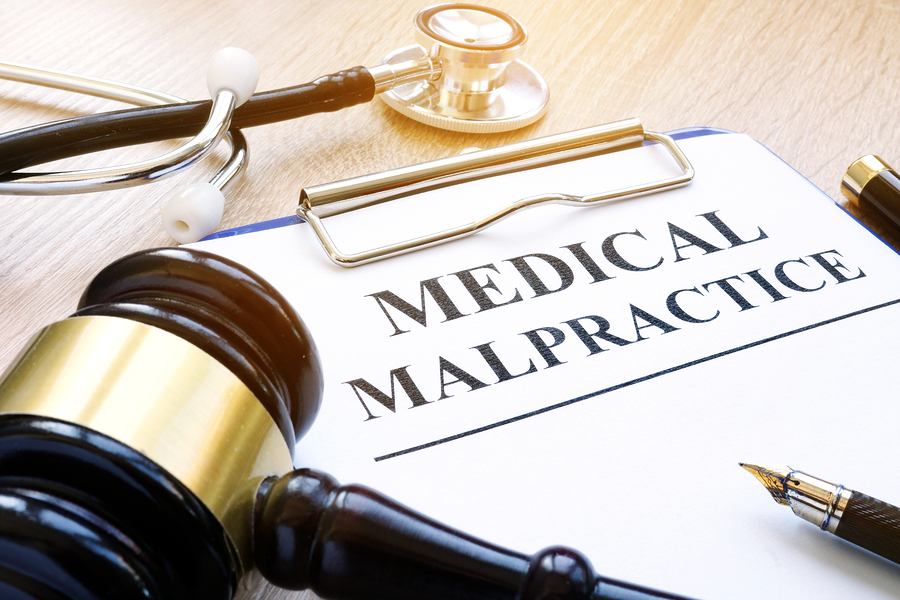Legal Information on South Carolina Law
Top 18 Questions About Medical Malpractice in SC

If you are considering a medical malpractice suit, you likely have a great number of questions. It is a very complicated and detail-driven area of law. An experienced medical malpractice attorney can help lead you through this process and answer any questions you may have.
Below is a compilation of the most common questions about medical malpractice. If you have a question that isn’t answered here, please contact our attorneys.
1. What is medical malpractice?
Basically when a doctor does something that other reasonable doctors wouldn’t do. Lawyers will tell you that when a doctor acts outside of what a reasonable physician would do under the same circumstances, it is said to be medical malpractice. In medical malpractice cases the law looks at something called “the standard of care.” This is lawyer speak for what would a reasonable doctor do in the same or similar situation. If the accused doctor did something different than what a reasonable doctor would do, then they have committed a “deviation from the standard of care.” This does not mean that they have committed malpractice.
To commit medical malpractice you have to suffer injuries as a result of the doctor’s action. If the unreasonable action didn’t really harm you then it isn’t malpractice, just bad medicine. However, if the doctor acted unreasonably and you were injured then you may be entitled to damages.
2. How do I know if a doctor acted unreasonably?
What is reasonable in the field of medicine is very complex; you won’t find the answer online. Many doctors with decades of medical practice may disagree. What you need to know is if you went to a hospital and had an unexpected bad result you need to speak to a lawyer. If you are surprised by the outcome, then in many cases the doctor may have acted unreasonably.
What will happen next is you need to talk to one of our lawyers. Our lawyer will order the medical records and have an expert review them. Our expert will tell you the facts about what happened. Then when we know the facts we can determine if there was medical malpractice and seek just compensation for your injury.

Do you have a medical malpractice case?
2. How do I know if a doctor acted unreasonably?
What is reasonable in the field of medicine is very complex; you won’t find the answer online. Many doctors with decades of medical practice may disagree. What you need to know is if you went to a hospital and had an unexpected bad result you need to speak to a lawyer. If you are surprised by the outcome, then in many cases the doctor may have acted unreasonably.
What will happen next is you need to talk to one of our lawyers. Our lawyer will order the medical records and have an expert review them. Our expert will tell you the facts about what happened. Then when we know the facts we can determine if there was medical malpractice and seek just compensation for your injury.
3. What is a statute of limitations?
The statute of limitations are laws which state how long you have from when you realized or should have realized you were injured by the fault of someone else to bring a claim. The law frowns on people waiting to file lawsuits. The goal is to file them quickly and bring you back to whole as soon as possible. Having suits longer than 3 years old causes problems for the legal system and so our legislature has passed a law that requires medical malpractice cases to be brought within 3 years from the date of injury or when you should have known you were injured, but no longer than six years from the date of treatment.
However, like most things in the law, there are exceptions and some statute of limitations are shorter. Examples are claims under the Tort Claims Act and for defamation (2 Years). Always get to an attorney as soon as possible so they can protect you from the statute of limitations.
“Basically when a doctor does something that other reasonable doctors wouldn’t do. You potentially have a case for medical malpractice.”
4. What are some examples of medical malpractice?
You go to the doctors office for a CT scan of the chest, because you have bronchitis. There is a tumor on the scan but the radiologist doesn’t pick up on it, the internal medicine doctor sees the scan and doesn’t tell you. Six months later you are diagnosed with stage IV lung cancer.
You go to the doctor to have a knee replaced, the result is not satisfactory and you have to go back for a second knee replacement. If you ever must have a procedure done twice you should consider speaking to a lawyer. Barring known potential complications you shouldn’t expect to have multiple surgeries for the same issue. There are some exceptions to this, but in general if you must have a procedure performed twice you should talk to a lawyer.
If you are in a nursing home or hospital and get a bed sore. Bed sores are essentially a never event in health care. Meaning if you go to the hospital and get a bed sore you could be entitled to compensation. If you or a loved one develops a bed sore, speak to a lawyer.
5. How many deaths on average occur per year due to medical malpractice?
These records are not available due to the unavailability of data provided to the public. However, most medical malpractice attorneys have seen many deaths resulting from medical malpractice.
6. How do medical malpractice settlements work?
After your care has been evaluated by both sides you may be required to attend mediation in an attempt to reach a settlement. If you are interested in a settlement you and your lawyer will reach an agreement with the doctors medical malpractice insurance carrier. The agreement will specify how much the insurance company is to pay. You then release the doctor from all liability from the injury.
However, you need to be realistic. Settling medical malpractice cases is not like settling car wrecks. With car wrecks fault is usually simpler to decide and the laws are very specific as to who is at fault meaning insurance companies settle quicker. In medical malpractice cases fault must be proven by expert testimony.
Before you can recover for medical malpractice usually another expert doctor has to testify in support of your case. Then the defendant will have a medical expert testify. After those two events happens there will be a settlement conference where a settlement can be reached if both sides agree.
If you need money now there are ways your lawyer can help you find programs and other forms of assistance to help you if you are injured.

7. Is medical malpractice a tort?
Yes medical malpractice is a tort. Medical malpractice is based on the tort of “negligence.” Negligence is a fancy lawyer word for did someone act unreasonably to you and cause you injury. If they did, they are said to have committed the tort of negligence.
To prove a case of medical malpractice you must show the doctor took you as a patient, he deviated from the standard of care, and his deviation from the standard of care caused you injury and damages. Essentially, did the doctor do what the standard of care required? If he didn’t then were you injured as a result?
8. Who can sue for medical malpractice in SC?
Anyone who has been treated by a doctor and received injury and damages can sue for medical malpractice if an expert signs an affidavit that the doctor didn’t comply with the standard of care.
9. How to prove medical malpractice?
This is your lawyer’s job. What you need to know is if you had an unexpected bad medical outcome you need to talk to a lawyer. Your lawyer will hire an expert doctor to review your medical file and tell you what the medical facts are. Once this has happened your lawyer will gather evidence to support the case. After discovery and mediation, if the case had not been resolved, your case will be presented in trial in front of a judge and jury, where a verdict will be rendered.
10. Is medical malpractice a criminal act?
Not usually. If a doctor acts with a deliberate intent to injure you then criminal laws may apply. You must prove something lawyers call “mens rea,” a fancy lawyer word for did the person intend to harm you.
11. Are medical malpractice awards taxable?
The general rule is that personal injury settlements or verdicts are not taxable by any state or federal government. The reason for this is the object of the law is to make you whole again, as if the injury never happened. However, there are some exceptions.
If you are suing someone under a breach of contract theory, then those settlements and verdicts are taxable. Further, punitive damages awarded are taxable. The reason for this is punitive damages are regarded by the law as profit on top of your injury meant to punish the other party. The government views this as taxable.
If the defendant appeals the verdict, they must pay interest until such time as it is paid. This interest is taxable. If there was no physical injury only emotional or financial then the government taxes the settlement. The best course of action is to speak to one of our lawyers to advise you about the tax ramifications of your settlement or verdict.
12. Is medical malpractice personal injury?
Medical malpractice is a form of personal injury. Generally personal injury is a type of lawsuit that allows for recovery when someone does something to hurt or injure you. When someone runs into you with a car that is a form of personal injury. The same is true when a doctor does something outside of the standard of care and injures you.
The key to understanding medical malpractice is in understanding the concept of negligence. Negligence is a legal theory that basically states that people have a duty to act reasonably and not harm other people. When someone is a professional and undertakes the duty of using his or her professional expertise to help you, the law tasks that person with rendering professional care in accord with what a reasonable professional would do under the same or similar circumstances.
13. What does reasonable care mean?
Reasonable care means that person acted in the same way a reasonable person in his or her profession would have acted under the same or similar circumstances. Sometimes there are more than one correct choice, but ultimately this standard is decided by those in the profession. This choice is known as “the standard of care.”
For example, in medical malpractice, the standard of care can be complex to find it out. You can’t research it online. It is determined by talking with experts in the field, reviewing medical literature, guidelines, and journal articles about the situation you were confronted with.
It is your lawyer’s job to determine what the standard of care for your situation is and to provide evidence to support it. This is why you need us. If you have an issue and are unsure if it falls within the standard of care, please speak to one of our lawyers, who can review the case.
14. What are the 4 elements that must be proven in a case of malpractice?
1) Duty
Duty means did someone have a duty to treat you reasonably? Doctors have no obligation to treat you, but if they decide to do so they must do so reasonably. If a doctor decides to treat you they have the obligation of doings of reasonably.
2) Breach
Breach means did someone who had a duty to act unreasonably or outside of the “standard of care.” If a doctor undertook treatment of you that person has a duty to do his or her job within the “standard of care.” Basically, he or she should do what a reasonable physician should do. If they don’t they have breached the standard of care.
3) Causation
Causation means simply did the breach cause you harm or damages? Lawyers use fancy words like “proximate cause” or “causation in fact.” Proximate cause means that if there were multiple causes or there were multiple events which led you to be injured, at least one of the “proximate causes” was the fact that the doctor acted unreasonably. “Causation in fact” means the breach was a sole or direct cause of your injury and without which the injury would not have occurred.
4) Damages
To bring any civil claim including medical malpractice, you must have sustained damages. These include medical expenses, lost wages, and disability. Emotional damages are a form of damages so if someone did something unreasonable and hurt you emotionally that counts as damages. Your attorney can explain recoverable damages to you based on the facts of your case.
15. Do medical malpractice attorneys work on contingency?
Yes, medical malpractice lawyers work on contingency. It is standard in the industry for lawyers to take 40% of the recovery. For specific information please contact a medical malpractice lawyer to discuss the specifics.
16. What is the difference between medical malpractice and medical negligence?
One type of medical malpractice is medical negligence. Most medical malpractice cases are brought under theories of medical negligence. However, if a doctor does something to intentionally injure you or something illegal, it will be medical malpractice brought under an intentional tort theory and or criminal jurisprudence.
17. What is the average settlement for medical malpractice?
The best answer is it depends on how badly you were injured and what damages you can recover.
18. How or to whom do I report medical malpractice?
You should contact a medical malpractice lawyer immediately and let them review your case. Depending on your case, your lawyer may bring the action to the attention of the medical board if appropriate.
Ready To Take Action?
It won’t cost you anything to speak with an attorney about your case.
